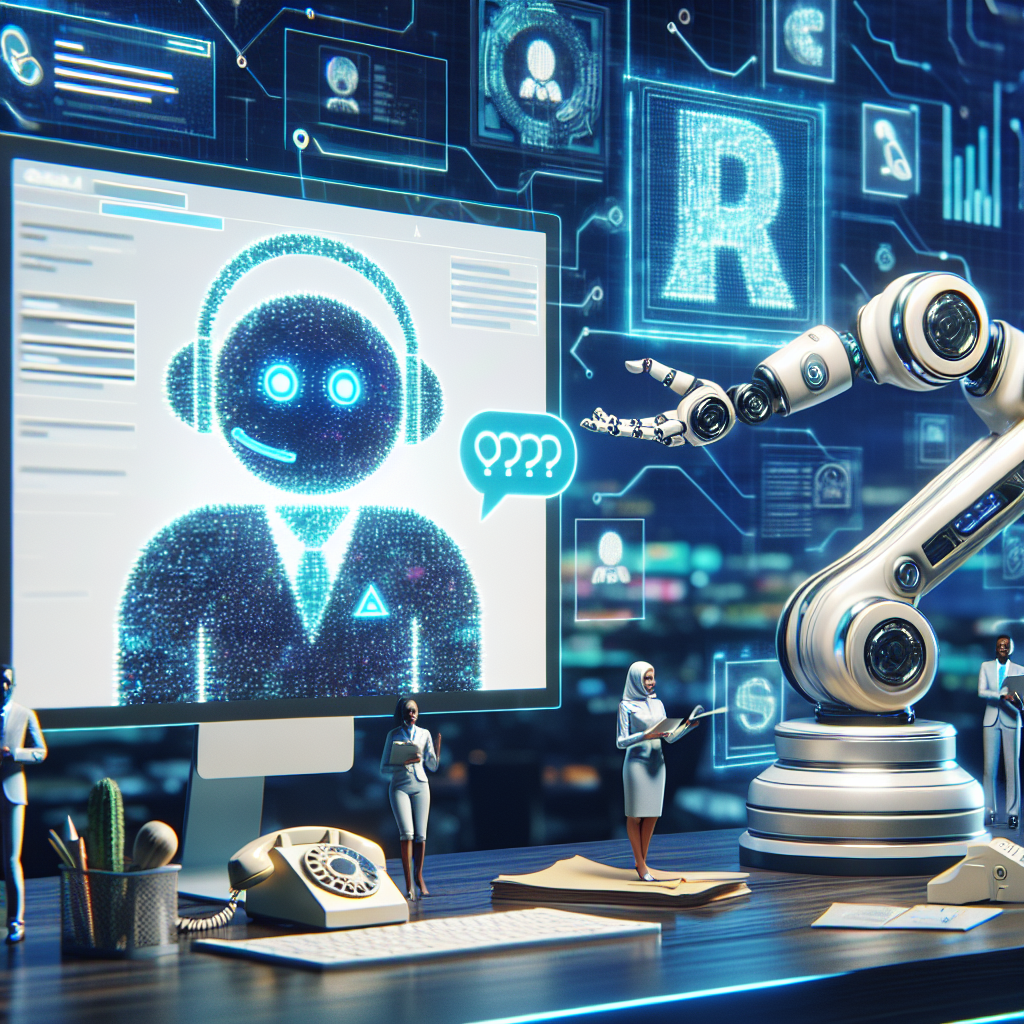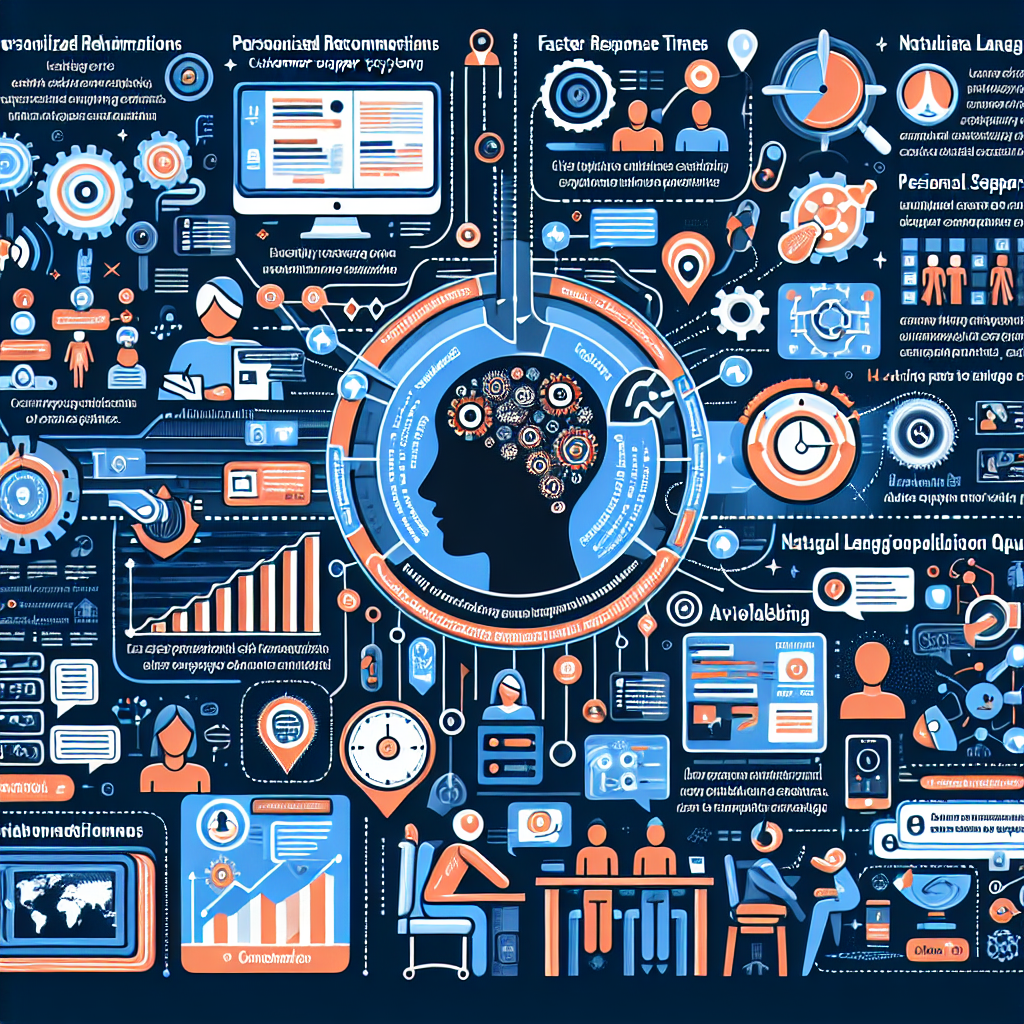
With the advent of Artificial Intelligence (AI), industries are undergoing major breakthroughs, and the realm of technical support is no exception. As an emerging tool in customer service, AI is gaining traction for revolutionizing the way we deal with technical support calls.

Automated responses and AI-driven troubleshooting guidance are two of the most significant advances we see in technical support. By leveraging Machine Learning (ML) algorithms and Natural Language Processing (NLP) technologies, AI can now handle basic tech support calls, de-escalate situations, guide customers through troubleshooting processes, thereby significantly reducing wait times and enhancing customer satisfaction.
AI chatbots are one of the key developments in technical support, enabling 24/7 customer service. These sophisticated virtual assistants understand and respond to user queries, helping to identify and address problems effectively.
Moreover, AI implementation into technical support improves business efficiency, scales up the potential to handle a large number of calls, and remarkably trims downtime. While human intervention continues to remain crucial, AI-led customer support augments their capabilities and adds a layer of precision and speed to the process.
As we move forward, the merger of AI and technical support looks promising in delivering a superior customer experience. As the technology evolves, it will continue to redefine customer engagement, problem-solving methodologies, and serve as a pivotal tool for businesses to create a stronger and more personalized rapport with their customers.
Artificial Intelligence (AI) is revolutionising customer service, particularly in the field of technical support calls. With the advent of AI voice technologies, customer interactions have been dramatically transformed. These AI-powered systems can understand specific client inquiries, deliver precise responses, and guide customers through troubleshooting processes in real-time. Enhanced with machine learning algorithms, they can adapt and improve with every conversation.
Timely and precise assistance is one of the most remarkable benefits of AI in customer support. Once a call is initiated, AI can quickly assess a problem and find suitable solutions without the wait times typically associated with human-led service. Sophisticated AI platforms can even handle multiple customer calls simultaneously, significantly reducing the average support time. Interestingly, contrary to popular fears, these technologically advanced tools do not alienate customers; they instead offer a seamless experience that users appreciate.
Moreover, these systems exhibit a context-aware understanding of customer issues. Aided by Natural Language Processing, these tools can comprehend the customer's language, sentiment, and purpose, providing an effective, humanlike interaction. This means they can understand the whole narrative of a customer's issue, including past interactions and potential resolutions.
AI-powered customer support also provides consistent service quality. With human agents, the service quality can profoundly vary across agents and calls. However, AI ensures the same level of expertise and professionalism in every call. Meanwhile, it empowers human agents by taking over simpler queries and leaving more complex ones to experienced professionals.
AI's role in enhancing customer interaction cannot be overstated. It not only increases the efficiency and quality of customer support but also leads to happier customers. As businesses strive to deliver superior customer experiences, the use of AI tools in customer support is destined to become more prevalent.
Technical support calls have long been a staple for customer support services. With the advent of artificial intelligence, these processes are undergoing significant improvement. Top features of AI-driven support systems include natural language processing, machine learning algorithms, and integration capabilities that merge seamlessly with other platforms such as Customer Relationship Management tools and databases. (source)

Using Natural Language Processing(NLP), AI support systems are able to understand, interpret and respond to customer queries in a conversational manner. This mimics human interaction and facilitates a smoother customer experience. Machine learning algorithms allow these systems to constantly improve by learning from previous interactions. They can detect patterns, automate responses for recurring issues, and even predict future challenges.
In addition, AI support systems are designed for seamless integration with established platforms. This includes CRMs, databases and cloud services, creating a unified and efficient workflow. Data from these sources are utilized by the AI to provide smart, personalized solutions to each customer’s unique problems.(source)
AI in technical support calls is not just a trend—it's a game-changer. By leveraging NLP, machine learning, and easy integration, companies can improve their customer's experience significantly. This paves the way for a future where technical support is faster, more accurate, and most importantly, much more user-friendly.(source)
In recent years, the revolution of AI in the realm of technical support calls has dramatically transformed the approach to customer service. One exceptional example of this is the telecommunications industry, specifically Orange–a French multinational corporation. It employs an AI-based virtual assistant, Djingo, to interact with customers and guide them through troubleshooting processes. This has led to a significant decrease in call duration, an increase in first-call resolution, and overall improved customer satisfaction.
Financial institutions have also significantly benefitted from this AI transformation. Bank of America’s virtual assistant, Erica, has proved to be a remarkable success, handling an array of services, and, most notably, technical support calls. Utilising advanced machine learning and predictive analytics, Erica provides prompt solutions, helping customers to navigate online interfaces and mobile applications, resolving issues with increased efficiency and speed.
Moreover, IT companies such as IBM have redefined the scope of AI in customer support by leveraging its AI platform, Watson, to offer technical support to its vast client base. Watson's capabilities extend beyond simple troubleshooting, offering future problem anticipation and swift resolution.
These real-world examples underline the tremendous potential of AI in technical support calls. However, the ultimate challenge lies in personalised engagement and maintaining the ‘human touch’ in customer interactions, which can only be realised through constant learning and adaptation.
In conclusion, the deployment of AI in technical support calls promises myriad future possibilities. Aiding businesses in redefining customer service, efficiently resolving customer issues, cutting down service costs, and ensuring enhanced satisfaction and loyalty.
Recent advancements in technology have led to the development and application of Artificial Intelligence (AI) in various industry sectors — one of which is AI in customer support. This trend has introduced numerous benefits such as streamlined processes and enhanced customer engagement. However, deploying AI in technical support calls is not without challenges and ethical considerations.

One of the foremost concerns with AI deployment is privacy. As AI in technical support calls involves processing customer data, there are inevitable privacy concerns. AI systems must adhere to data protection laws, such as the General Data Protection Regulation (GDPR). These aims to ensure the safety of individuals' data and impose heavy penalties for non-compliance. Thus, when deploying AI systems, companies need to ensure the utmost data protection and privacy.
Another pointer is the need for human oversight. AI systems, while increasingly sophisticated and autonomous, are not foolproof and may occasionally mishandle complex customer problems. In such scenarios, human intervention becomes crucial to maintain the service quality. Therefore, the system must be designed so that a human agent can intervene when needed. Employing a human-in-the-loop approach can be beneficial here.
Additionally, transparency becomes a critical aspect of AI deployment. The decision-making processes of AI systems are frequently considered as a “black box” due to their opacity. It is crucial that companies deploying AI systems make the AI’s operation transparent for its users to gain their trust. This might involve demonstrating a clear and understandable pathway of how the AI comes to its conclusion in problem-solving situations.
To conclude, while the application of AI in technical support calls has numerous benefits, there are significant challenges and ethical considerations to account for. Carefully addressing these concerns may facilitate a more effective and ethical AI integration in this domain.
In the realm of technical support, a remarkable transformation is being driven by the advent of Artificial Intelligence (AI). By absorbing the vast swathes of data obtained from customer interactions and using machine learning algorithms, AI models are now capable of providing user support that is both efficient and responsive on a hitherto unprecedented scale.
One significant development predicted for the near future is an increase in the efficiency and effectiveness of verbal and written communication between AI and customers. Advances in Natural Language Processing (NLP) will facilitate improved understanding and generation of support-related dialogues by AI. Advances in emotion AI will allow these AI systems to better comprehend customer sentiment and respond appropriately, creating a more personal and human-like experience.
In the near future, we can anticipate a further emergence of AI-driven, proactive technical support. Instead of waiting for users to contact a service desk, AI platforms will be able to detect and diagnose problems independently and oftentimes resolve issues without any human intervention or even user awareness. This is a significant shift from traditional technical support models.
Yet, human agents will not become obsolete. While AI can process information and provide solutions based on pre-programmed algorithms, the human ability to empathize with customers, coupled with the ability to understand complex and unique scenarios, will continue to hold intrinsic value. Shifting more routine tasks to AI allows human service agents to focus on more complex and delicate issues, thereby enhancing overall service quality and customer satisfaction.
In conclusion, the future of AI in technical support promises a landscape where customer service touchpoints are not only more efficient and predictive but also more human in character, despite their artificial origin. The key lies in striking a balance between adopting new technology while maintaining human empathy and understanding at its best.
Start your free trial for My AI Front Desk today, it takes minutes to setup!








